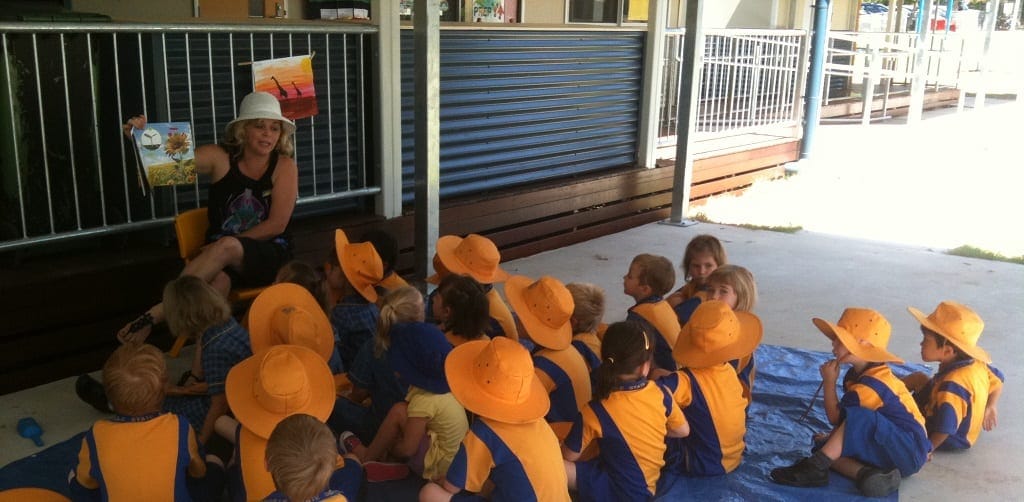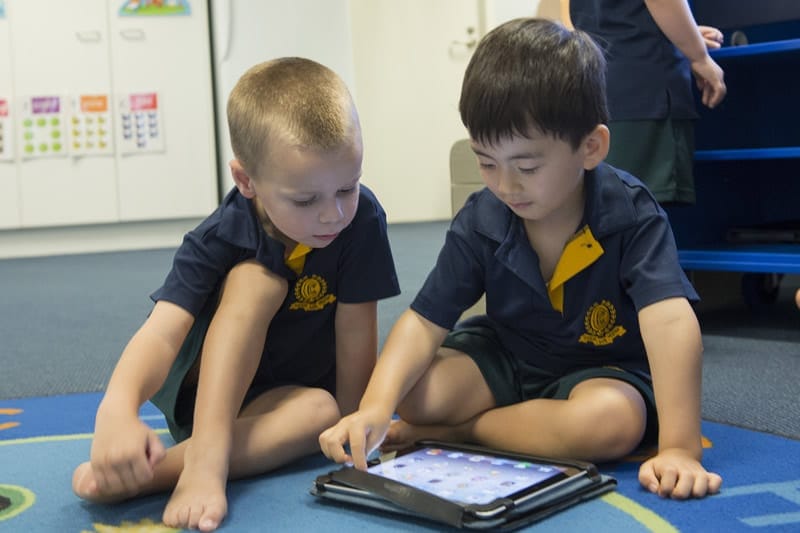Children need to be socially, emotionally and physically ready for a Prep programme and as a parent, you play a vital role in your child’s education and there are many things you can do to help prepare your child for Prep.
A study by Margetts (2011), suggests that parents should consider two perspectives: how parents can prepare their child for school and; what Prep children want to know when starting school.
How you can help your child prepare for prep
You can help your child prepare for Prep by:
- improving your child’s independence
- having a daily routine
- packing a healthy lunch
- knowing your school
- getting involved with your school
- doing family activities at home

Improve your child’s independence
Parents can help make the transition to Prep smoother by preparing their children to be as independent as possible. This includes helping them practice:
- packing and carrying their own school bag
- dressing and undressing themselves in their school uniform (important for Preps who swim in Term 1)
- eating and drinking without help
- going to the toilet on their own
- using tissues to blow their nose
- recognising their belongings
Having a daily routine
Daily routines also help children understand what they need to do, when to do it each day and why it’s important.
To help prepare your child for Prep, get them into a routine, which includes:
- going to bed early, regularly
- waking up at a certain time—leave plenty of time to get ready
- having a healthy breakfast—needed for energy and concentration
- preparing and eating lunch
- making time for physical activities.
Before your child starts Prep, make sure you talk to them about what to expect. Remember to be flexible, as it may take them some time to understand their new routine and adjust socially.
It’s also important for parents to teach their children to communicate well so they can make their needs known, respond when spoken to and use appropriate greetings.
Packing a healthy lunch
When packing your child’s lunch:
- provide healthy and filling food and drinks (not sweets and chips) in realistic quantities for morning tea and lunch
- make sure they can easily open wrapped items and, their lunch box
- provide a variety of smaller items instead of 1 or 2 large items
- provide a water bottle every day and encourage your child to use it.
10 Parenting Hacks to get your child to EAT their lunch!
Knowing your school

Help your child get to know the school environment and routine by:
- Finding opportunities for children to visit the school to familiarise themselves with their new environment can reduce stress and make the first day a little less scary.
- You could drive or walk by the school a few times or attend an orientation program or open day so your child may meet the teachers and see the classroom.
- It’s also a good idea to visit the school while other children are there, if you can. That way your child can get used to the noise and movement of lots of children at the school
- asking the school what equipment and materials your child needs—like a school bag, library bag or hat—most schools will have a list. Make sure all possessions are labeled with your child’s name.
Before their first day, your child should know how to easily find their classroom and where to:
- put their things—like school bag and hat
- have their lunch breaks
- meet you each day when school is finished
- go to for before and after school care—if needed.
Encourage them to ask a teacher if they need help.
Get involved with school activities
Help your child get a good start to their education. Take an interest in their schooling, be positive about it and let them know it’s important to attend.
Get involved with their school by:
- meeting the teacher
- informing the teacher of any changes affecting your child
- talking to other parents
- volunteering (e.g. in the tuck shop)
- reading school newsletters and bulletin boards
- attending school events like parent association meetings, fetes, open days or sporting carnivals.
Doing family activities at home
You can also help your child’s progress at school by doing family activities including:
- reading aloud (develops concentration and awareness of language patterns) and writing with them—eg shopping lists and letters
- stimulating their imagination and natural curiosity—eg visiting a zoo, park or airport
- playing sports, and card or board games—helps develop mathematical, problem solving, language and social skills
- shopping, walking or gardening together
- singing their songs and nursery rhymes together.
A successful education depends on a positive partnership between yourself, your child and your child’s teacher. So are you and your child, ready, set, Prep?
This article was first published in our print magazine Issue 1 on 1st December, 2013 and was contributed by Mrs Susan Finney – Early Childhood Teacher at Clayfield College


This is a good article and I’m preparing for my daughter next year. Yesterday she was still in my arms, tomorrow she is going to school. Where have the time gone? 🙂
Thanks for great tips.
Our pleasure! And yes, the DO grow up too fast! 🙁
It’s nearly January and starting Prep will soon be on the minds of many a Brisbane family. Let us know if you found this article helpful!
I love this article. I sell a chart for children to help them with their morning routine and help to create independence. I am a Prep aide and hear all the time “How can I prepare my kids for Prep/Year 1?”
Independence is so important for a child’s development yet I feel overbearing parents are taking this away from their children and they are missing this vital step in their formative years. Perhaps if more articles like this circulate, more parents might ‘get’ it!